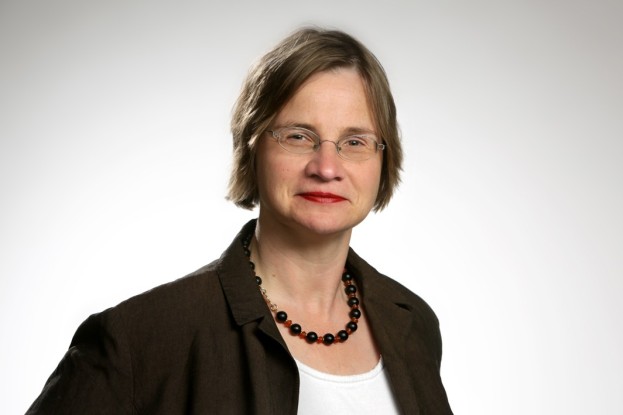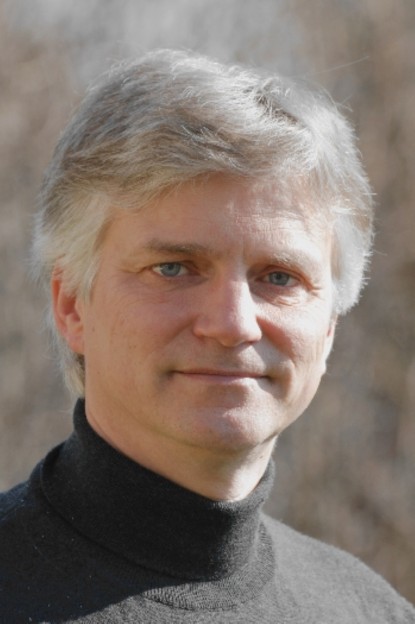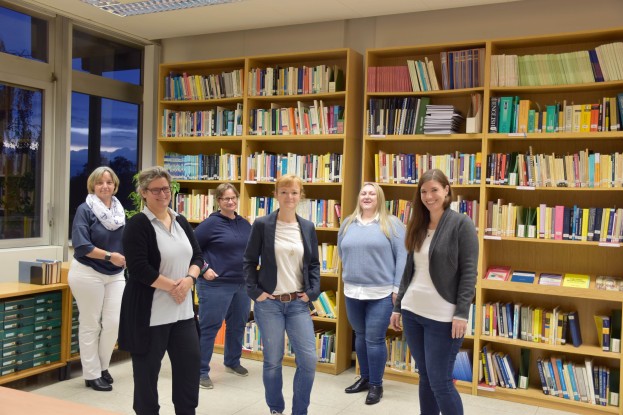This minor subject is a special minor subject. Please be sure to read the relevant information in the general information.
General information
Your degree programme, field of study, examination regulations version and (from PO 2018) minor subject version are relevant for the choice of minor subject. Please be sure to read the general information. There you will also find the number of credit points (CP) to be earned. Modules not listed here are possible with approval.
Please note: Not everything you can choose in TUCaN can also be included in the degree programme.
Due to a change in the study regulations of the minor subject, for example, certain module combinations may not be possible (because they overlap too much). In case of doubt, please ask for approval of a voluntary examination plan or ask our study coordinator.
| Module name | CP | Module number | |
|---|---|---|---|
| Mandatory | Elektro- und Informationstechnik I | 7 | 18-ku-1070 |
| Elective (freely selectable | Elektrotechnik und Informationstechnik II | 7 | 18-gt-1020 |
| Deterministische Signale und Systeme | 7 | 18-kl-1010 | |
| Grundlagen der Elektrodynamik | 5 | 18-dg-1010 | |
| Physik I | 4 | 05-91-1024 | |
| Physik II | 4 | 05-91-1025 | |
| Halbleiterbauelemente | 4 | 18-sw-1010 | |
| Messtechnik | 6 | 18-kn-1011 | |
| Logischer Entwurf | 6 | 18-hb-1010 | |
| Elektronik | 7 | 18-ho-1011 | |
| selectable upon request | Softwarepraktikum | 4 | 18-su-1020 |
| Specialisation AUT (restricted) | Systemdynamik und Regelungstechnik I | 6 | 18-ko-1010 |
| Systemdynamik und Regelungstechnik II | 7 | 18-ad-1010 | |
| Technische Mechanik für Elektrotechniker | 6 | 16-26-6400 | |
| Elektrische Maschinen und Antriebe | 5 | 18-bi-1020 | |
| Praktikum Regelungstechnik I | 2 | 18-ko-1020 | |
| Specialisation CED (restricted) | Verfahren und Anwendungen der Feldsimulation I | 3 | 18-dg-1030 |
| Softwarepraktikum zu Verfahren und Anwendungen der Feldsimulation I | 8 | 18-dg-1041 | |
| Projektseminar Elektromagnetisches CAD | 8 | 18-dg-1060 | |
| Technische Elektrodynamik | 6 | 18-kb-1030 | |
| Energietechnik | 6 | 18-bi-1010 | |
| Kommunikationstechnik I | 6 | 18-kl-1020 | |
| Nachrichtentechnik | 6 | 18-jk-1010 | |
| Systemdynamik und Regelungstechnik I | 6 | 18-ko-1010 | |
| Projektseminar Beschleunigertechnik | 9 | 18-kb-1020 | |
| Specialisation DT (restricted) | Kommunikationsnetze I | 6 | 18-sm-1010 |
| Rechnersysteme I | 6 | 18-hb-1020 | |
| Analog Integrated Circuit Design | 6 | 18-ho-1020 | |
| Software-Engineering – Einführung | 6 | 18-su-1010 | |
| Digitaltechnisches Praktikum | 3 | 18-hb-1030 | |
| Praktikum Multimedia Kommunikation I | 3 | 18-sm-1020 | |
| Specialisation EET (restricted) | Energietechnik | 6 | 18-bi-1010 |
| Hochspannungstechnik I | 5 | 18-hi-1020 | |
| Elektrische Energieversorgung I | 5 | 18-hs-1010 | |
| Elektrische Maschinen und Antriebe | 5 | 18-bi-1020 | |
| Leistungselektronik I | 5 | 18-gt-1010 | |
| Systemdynamik und Regelungstechnik I | 6 | 18-ko-1010 | |
| Technische Mechanik für Elektrotechnik | 6 | 16-26-6400 | |
| Specialisation KTS (restricted) | Hochfrequenztechnik I | 6 | 18-jk-1020 |
| Information Theory I | 6 | 18-kp-1010 | |
| Optical Communications 1 – Components | 6 | 18-ku-1060 | |
| Grundlagen der Signalverabeitung | 6 | 18-zo-1030 | |
| Kommunikationstechnik I | 6 | 18-kl-1020 | |
| Nachrichtentechnik | 6 | 18-jk-1010 | |
| more module possible upon approval* | |||
| * All elective modules from the core study programmes are eligible, provided there is sufficient capacity. | |||
|
When selecting modules from the basic catalogue, please focus on prior knowledge of one of the Master's specialisations ETIT: (AUT, DT, EET, KTS, CED and SAE). In future, SAE will replace the Bachelor's specialisations IMNT and MFT. Please enquire which modules of the Bachelor's basic catalogue are required in which specialisation modules (module description or student advisory service). |
|||
| Module name | CP | Module number | |
|---|---|---|---|
| restricted | as in the bachelor's programme (elective – freely selectable and specialisations) | ||
| Specialisation CED (restricted) | Forschungspraxis I | 8 | 18-dg-2130 |
| Forschungspraxis II | 8 | 18-dg-2140 | |
| Verfahren und Anwendungen der Feldsimulation II | 3 | 18-dg-2010 | |
| Verfahren und Anwendungen der Feldsimulation III | 3 | 18-dg-2020 | |
| Beschleunigung geladener Teilchen im elektromagnetischen Feld | 5 | 18-kb-2010 | |
| Beschleunigerphysik | 3 | 18-bf-2010 | |
| Projektseminar Beschleunigertechnik | 9 | 18-kb-1020 | |
| Röntgenlicht-Freie-Elektronen-Laser | 4 | 18-dg-2110 | |
| Seminar Physik und Technik von Beschleunigern | 6 | 18-dg-2070 | |
| Simulation von Strahldynamik und elektromagnetischen Feldern in Teilchenbeschleunigern | 3 | 18-dg-2170 | |
| Angewandte Supraleitung | 3 | 18-bf-2030 | |
| Elektromagnetismus und Differentialformen | 3 | 18-dg-2030 | |
| Specialisation DT (restricted) | Advanced Digital Integrated Circuit Design | 6 | 18-ho-2010 |
| Kommunikationsnetze II | 6 | 18-sm-2010 | |
| Rechnersysteme II | 6 | 18-hb-2030 | |
| Software-Engineering – Wartung und Qualitätssicherung | 6 | 18-su-2010 | |
| Industriekolloquium | 2 | 18-sm-2290 | |
| Circuit Building Blocks for Communication Systems | 4 | 18-ho-2190 | |
| Content Networking | 3 | 18-sm-2140 | |
| Drahtlose Sensornetze | 6 | 18-sm-2160 | |
| Echtzeitsysteme | 6 | 18-su-2020 | |
| Kommunikationsnetze IV | 3 | 18-sm-2030 | |
| Low-Level Synthese | 6 | 18-hb-2010 | |
| Microprocessor Systems | 4 | 18-ho-2040 | |
| Peer-to-Peer Systeme und Anwendungen | 6 | 18-hh-2010 | |
| Social Learning und Knowledge Sharing Technologien | 6 | 18-sm-2310 | |
| Software Defined Networking | 6 | 18-sm-2280 | |
| Verification Technology | 6 | 18-ev-2020 | |
| Computer Aided Design for SoCs | 5 | 18-ho-2200 | |
| Industrieelektronik | 4 | 18-ho-2210 | |
| Machine Learning in Information and Communication Technology (ICT) | 6 | 18-kp-2110 | |
| HDL Lab | 6 | 18-ho-1090 | |
| Praktikum Advanced Topics in Communication Networks | 6 | 18-hh-2030 | |
| Praktikum Intelligente Netzwerke | 6 | 18-hh-2070 | |
| Praktikum Multimedia Kommunikation II | 6 | 18-sm-2070 | |
| Praktikum Sichere Mobile Netze | 6 | 20-00-0552 | |
| Projektseminar Advanced Topics in Communication Networks | 6 | 18-hh-2040 | |
| Projektseminar Design for Testability | 6 | 18-ho-2130 | |
| Projektseminar Echtzeitsysteme | 6 | 18-su-2070 | |
| Projektseminar Modellbasierte Softwareentwicklung | 6 | 18-su-2030 | |
| Projektseminar Multimedia Kommunikation II | 6 | 18-sm-2080 | |
| Projektseminar Rekonfigurierbare Systeme | 6 | 18-hb-2040 | |
| Seminar Integrated Electronic Systems Design A | 4 | 18-ho-2160 | |
| Seminar Multimedia Kommunikation II | 4 | 18-sm-2090 | |
| Seminar Software Defined Networking | 4 | 18-hh-2060 | |
| Seminar Softwaresystemtechnologie | 4 | 18-su-2080 | |
| Specialisation KTS (restricted) | Digitale Signalverarbeitung | 6 | 18-zo-2060 |
| Hochfrequenztechnik II | 6 | 18-ku-2040 | |
| Information Theory II | 6 | 18-pe-2010 | |
| Communication Technology II | 4 | 18-kl-2010 | |
| Praktikum Kommunikationstechnik und Sensorsysteme | 5 | 18-jk-2050 | |
| Adaptive Filter | 6 | 18-zo-2010 | |
| Advances in Digital Signal Processing: Imaging and Image Processing | 5 | 18-zo-2080 | |
| Akustik I | 3 | 18-se-2010 | |
| Antennas and Adaptive Beamforming | 6 | 18-jk-2020 | |
| Konvexe Optimierung in Signalverarbeitung und Kommunikation | 6 | 18-pe-2020 | |
| Mikrowellen Sensoren | 5 | 18-jk-2070 | |
| MIMO – Communication and Space-Time-Coding | 4 | 18-pe-2030 | |
| Mobile Communications | 6 | 18-kl-2020 | |
| Optical Communications 2 – Systems | 4 | 18-ku-2070 | |
| Praktikum Digitale Signalverarbeitung | 6 | 18-zo-2030 | |
| Radartechnik | 3 | 18-jk-2040 | |
| Simulations- und Modellierungstechniken und –werkzeuge für Mobile Kommunikationssysteme | 3 | 18-kl-2060 | |
| Sprach- und Audiosignalverarbeitung | 4 | 18-zo-2070 | |
| Terrestrial and Satellite-based Radio Systems | 6 | 18-jk-2030 | |
| Computational Methods for Systems and Synthetic Biology | 4 | 18-kp-2080 | |
| Ausgewählte Themen der Radartechnik | 3 | 18-jk-2100 | |
| Sensor Array Processing and Adaptive Beamforming | 4 | 18-pe-2060 | |
| Mikrowellenmesstechnik | 6 | 18-jk-2090 | |
| Machine Learning & Energy | 6 | 18-st-2020 | |
| Machine Learning in Information and Communication Technology (ICT) | 6 | 18-kp-2110 | |
| Advanced Topics in Statistical Signal Processing | 8 | 18-zo-2040 | |
| Optical Communications3 – Seminar WDM Lab | 4 | 18-ku-2080 | |
| Project Seminar Advanced µWave Components & Antennas | 8 | 18-jk-2060 | |
| Project Seminar Wireless Communications | 8 | 18-kl-2040 | |
| Projekt Seminar Advanced Algorithms for Smart Antenna Systems | 8 | 18-pe-2040 | |
| Signal Detection and Parameter Estimation | 8 | 18-zo-2050 | |
| Projekt Seminar Procedures for Massive MIMO and 5G | 8 | 18-pe-2050 | |
| European Microwave School | 3 | 18-jk-2080 | |
| Specialisation AUT (restricted) | Systemdynamik und Regelungstechnik III | 4 | 18-ad-2010 |
| Digitale Regelungssysteme I | 4 | 18-ko-2020 | |
| Identifikation dynamischer Systeme | 4 | 18-ko-2040 | |
| Modellbildung und Simulation | 4 | 18-ko-2010 | |
| Praktikum Regelungstechnik II | 5 | 18-ad-2060 | |
| Digitale Regelungssysteme II | 3 | 18-ko-2030 | |
| Forschungsseminar “Weiterführende Methoden der Regelungstechnik” | 5 | 18-ko-2100 | |
| Fuzzy-Logik, Neuronale Netze und Evolutionäre Algorithmen | 4 | 18-ad-2020 | |
| Mehrgrößenreglerentwurf im Zustandsraum | 5 | 18-ko-2050 | |
| Industrieelektronik | 4 | 18-ho-2210 | |
| Bildverarbeitung für Ingenieure – Grundlagen der bildgestützten Mess- und Automatisierungstechnik | 4 | 18-ad-2090 | |
| Praktikum Matlab/Simulink II | 4 | 18-ko-2070 | |
| Projektseminar Automatisierungstechnik | 8 | 18-ad-2080 | |
| Projektseminar Mechatronik im Automobil | 8 | 18-ko-2080 | |
| Projektseminar Praktische Anwendungen der Mechatronik | 8 | 18-ko-2130 | |
| Projektseminar Regelungstechnik | 8 | 18-ko-2090 | |
| Projektseminar Regelungstechnik im Automobil | 8 | 18-ko-2120 | |
| Projektseminar Robotik und Computational Intelligence | 8 | 18-ad-2070 | |
| Prozessleittechnik | 3 | 18-ad-2030 | |
| Robuste Regelung | 3 | 18-ko-2140 | |
| Specialisation SAE (restricted) | Advanced Digital Integrated Circuit Design | 6 | 18-ho-2010 |
| Mikrosystemtechnik | 4 | 18-sl-2040 | |
| Sensortechnik | 4 | 18-kn-2120 | |
| Halbleiterlichttechnik | 5 | 18-kh-2060 | |
| Technologie der Mikrosystemtechnik | 4 | 18-sl-2010 | |
| Sensorsignalverarbeitung | 3 | 18-kn-2130 | |
| Optical Communications 1 – Components | 6 | 18-ku-1060 | |
| Elektronische Sensoren | 3 | 18-sw-2020 | |
| Mikroaktoren und Kleinmotoren | 4 | 18-sl-2020 | |
| Sensorsignalverarbeitung | 3 | 18-kn-2130 | |
| Biomedizinische Technik | 3 | 18-kn-2050 | |
| Lichttechnik II | 5 | 18-kh-2020 | |
| Optische Technologien im KFZ-Bereich | 4 | 18-kh-2041 | |
| Computer Aided Design for SoCs | 5 | 18-ho-2200 | |
| Circuit Building Blocks for Communication Systems | 4 | 18-ho-2190 | |
| Optical Communications 2 – Systems | 4 | 18-ku-2070 | |
| Rechnersysteme II | 6 | 18-hb-2030 | |
| Digitale Signalverarbeitung | 6 | 18-zo-2060 | |
| Printed Electronics | 4 | 16-17-5110 | |
| Digitale Drucktechnologie | 4 | 16-17-5030 | |
| Machine Learning in Information and Communication Technology (ICT) | 6 | 18-kp-2110 | |
| Praktische Entwicklungsmethodik III | 5 | 18-kn-2101 | |
| Praktische Entwicklungsmethodik IV | 5 | 18-sl-2101 | |
| Praktikum Elektromechanische Systeme | 4 | 18-kn-2090 | |
| Projektseminar Elektromagnetisches CAD | 8 | 18-dg-1060 | |
| Projektseminar Design for Testability | 6 | 18-ho-2130 | |
| Seminar Integrated Electronic Systems Design A | 4 | 18-ho-2160 | |
| Advanced Integrated Circuit Design Lab | 6 | 18-ho-2120 | |
| HDL-Lab | 6 | 18-ho-1090 | |
| Optical Communications 3 – Seminar WDM Lab | 4 | 18-ku-2080 | |
| Neuere Ergebnisse der Mikro- und Nanoelektronik | 4 | 18-sw-2030 | |
| Vertiefungsseminar Mikrosystemtechnik | 4 | 18-sl-2050 | |
| Ausgewählte Kapitel der Mess- und Sensortechnik | 4 | 18-kn-2140 | |
| Specialisation EET (restricted) | Advanced Power Electronics | 5 | 18-gt-2010 |
| Elektrische Energieversorgung II | 5 | 18-hs-2030 | |
| Energy Converters – CAD and System Dynamics | 7 | 18-bi-2010 | |
| Hochspannungstechnik II | 4 | 18-hi-2010 | |
| Energietechnisches Praktikum I | 4 | 18-bi-2091 | |
| Energietechnisches Praktikum II | 4 | 18-bi-2092 | |
| Berechnung transienter Vorgänge im elektrischen Energieversorgungsnetz | 6 | 18-hs-2060 | |
| Elektrische Energieversorgung der Zukunft | 4 | 18-hs-2020 | |
| Numerische Feldberechnung Elektrischer Maschinen und Aktoren | 5 | 18-bi-2110 | |
| Praxisorientierte Projektierung elektrischer Antriebe (Antriebstechnik für Elektroautos) | 5 | 18-bi-2120 | |
| Projektseminar Anwendungen der Hochspannungstechnik | 8 | 18-hi-2070 | |
| Anwendungen, Simulation und Regelung leistungselektronischer Systeme | 8 | 18-gt-2030 | |
| Antriebstechnisches Praktikum | 4 | 18-bi-2100 | |
| Praktikum Regelungstechnik I | 4 | 18-ko-1020 | |
| Praxisorientierte Projektierung elektrischer Antriebe (Antriebstechnik für Elektroautos) | 5 | 18-bi-2120 | |
| Simulation des elektrischen Energieversorgungssystems | 3 | 18-hs-2100 | |
| Control of Drives | 5 | 18-gt-2020 | |
| Elektrische Bahnen | 5 | 18-bi-2140 | |
| Elektrische Energieversorgung III | 3 | 18-hs-2080 | |
| Elektrische Triebfahrzeuge | 3 | 18-bi-2080 | |
| Electromagnetic Compatibility | 4 | 18-hi-2060 | |
| Elektrothermische Prozesstechnik | 3 | 18-bi-2070 | |
| Energiekabelanlagen | 3 | 18-hi-2040 | |
| Energieversorgung elektrischer Bahnen | 2 | 18-bi-2060 | |
| Energiewirtschaft | 3 | 18-hs-2010 | |
| Großgeneratoren und Hochleistungsantriebe | 4 | 18-bi-2020 | |
| Grundlagen der Schienenfahrzeugtechnik | 3 | 18-bi-2050 | |
| Hochspannungsschaltgeräte und -anlagen | 3 | 18-hi-2020 | |
| Kraftwerke und Erneuerbare | 4 | 18-hs-2090 | |
| Messverfahren der Hochspannungstechnik | 3 | 18-hi-2050 | |
| Motor Development for Electrical Drive Systems | 4 | 18-bi-2032 | |
| Neue Technologien elektrischer Energiewandler und Aktoren | 4 | 18-bi-2040 | |
| Überspannungsschutz und Isolationskoordination in Energieversorgungsnetzen | 4 | 18-hi-2030 | |
| Angewandte Supraleitung | 3 | 18-bf-2030 | |
| Energiemanagement & Optimierung | 6 | 18-st-2010 | |
| Gasisolierte Schaltanlagen und Leitungen | 3 | 18-hi-2080 | |
| Machine Learning & Energy | 6 | 18-st-2020 | |
| Blitzphysik und Blitzschutz | 3 | 18-hi-2090 | |
| Specialisation EET (upon approval) | Mechatronik-Workshop | 2 | 18-bi-1050 |
| Echtzeitanwendungen und Kommunikation mit Microcontrollern und programmierbaren Logikbausteinen | 4 | 18-gt-2040 | |
| more module possible upon approval* | |||
| * All elective modules from the core study programmes are eligible, provided there is sufficient capacity. | |||
| Restricted choice: Students may only choose from one of the six specialisations (AUT, CED, DT, KTS, SAE, EET) may be chosen. At least one Master's module must be selected. The other modules may also be selected from the Bachelor's basic catalogue and the corresponding Bachelor's specialisation catalogue. | |||
| If you are planning to write your Master's thesis in another subject area, we recommend that you clarify the options in advance with the lecturer(s) you are considering as supervisor(s) and discuss the study plan in the non-mathematical areas. Please also note: When registering a Master's thesis, a second reviewer from Department 04 must agree to the topic and thus confirm that the topic is sufficiently mathematically orientated. This is not always the case. | |||
A non-mathematical specialisation in this minor subject is only possible with the approval of the examination board.
Students may only choose from one of the six specialisation areas (AUT, CED, DT, KTS, SAE, EET).
The Master's minor subject ETIT must also be chosen at the same time.
The desired choice must be discussed with a potential examiner from ETIT and approved (form (opens in new tab)).
The selected modules should enable students to begin a Master's thesis in an interdisciplinary area between mathematics and ETIT.
If necessary, this must also be confirmed by a professor from the Department of Mathematics.
If a Master's thesis is actually to be written in the ETIT department, the topic must also be sufficiently mathematically orientated, which is not always the case. Therefore, this must be confirmed by the second assessor from the Department of Mathematics. If no such topic is available, the specialisation can still be studied.
AUT = Automation technology;
CED = Computer-aided electrodynamics;
DT = Data technology;
EET = Electrical Energy Technology;
KTS = Communication Technology and Sensor Systems;
SAE = Sensors, Actuators and Electronics
If you have any questions, please contact the examination board.



